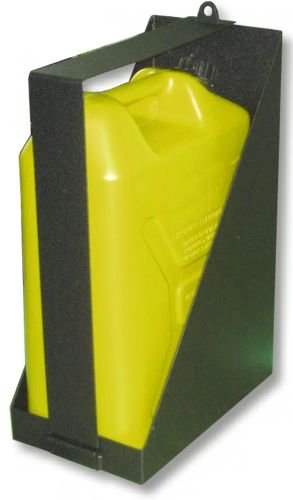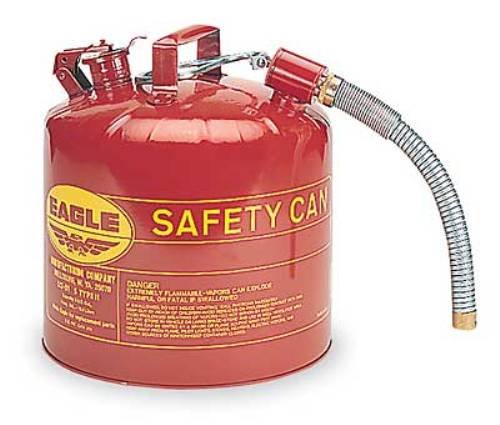The Biofuel Debate - What's all the fuss about?
There has been much talk of biofuels and in particular biodiesel being touted as a more carbon friendly alternative to traditional petroleum based fuel...
Because biodiesel is made from renewable resources (unlike fossil fuels) and it has lower emissions compared to petroleum diesel
Because it is less toxic than table salt and biodegrades as fast as sugar
Because it is made entirely from renewable resources such as soybeans, sunflowers, rapeseed and palm oil as well as waste vegetable oil (used cooking oils)
It surely follows biodiesel must be better for the environment...or is it?
Over the last few years through the Kyoto Protocol, governments have discussed the global issue of climate change with a view to setting targets to reduce greenhouse gases. Whilst there has been general agreement that something needs to be done and targets have been set, the United States is the only developed country that has not ratified the treaty and yet it is one of the significant greenhouse gas emitters.
The dilemma seems to be that biodiesel is undoubtedly greener than traditional petroleum based fuel. On the other hand however, as there is no stipulation how and where this fuel is produced, could this 'green' fuel actually be doing more harm to our environment than good?
Let's look at some of the contributing factors to this debate...
Biodiesel - The Good
As an alternative fuel, biodiesel would seem to be a very good alternative to fossil based fuels:-
Mitigating the effects of greenhouse gas emissions
Making best use of the remaining limited supplies of fossil fuels
Reducing air pollution along with the associated health risks to the public
Benefiting domestic economies by reducing the dependence on importing foreign petroleum
Relatively easy to produce in small or large volumes
Biodiesel - The Bad
The main problem with bio-fuels today is the source of the raw materials:
Biodiesel and ethanol are produced from plant oils and from edible crops meaning competition for basic foodstuffs, food or oil?
Rain forests are being converted to palm oil production (palm oil is a key ingredient of food and other consumables...it can also be used to produce biodiesel)
Current crops cannot keep pace with the bio-materials needed for producing biodiesel
Does this mean if we replace traditional petroleum based diesel with biodiesel we'll compromise our supply of foodstuffs?
Biodiesel - The Future
The Biotech Industry has begun to help with the need to find alternative fuel sources for the future by looking at how to get more from less:-
Increased production of more plants
Improving crop yields - corn, a common biofuel crop in the USA, yields under 200 barrels (per square mile per year) whereas Jatropha for instance can yield over 2,000 barrels
Use of marginal land - look at crops (see below) that can be grown on arid land rather than take away arable farmland needed for essential food production. Using arid land in the poorer regions could provide social and economic benefits for that region
New sources that lessen the threat of environmental impact include:-
Algae - grows quickly, renews quickly but to be a viable option cost effective harvesting remains a challenge
Jatropha - can be grown in arid climates, has a high yield compared with traditional biocrops, has the potential to increase fertility of the land
Camalina - Researchers say the Camelina plant is an excellent source of biofuel; it can be grown in arid land, with less water, fertilizer and pesticides
Biodiesel - Many Complex Issues
Diesel engines were in fact originally designed in the early 1900's to run on biodiesel made from oil seed crops and not to run on petroleum-based diesel. Was it a mistake not to encourage the development and take up of biodiesel back then instead of depending almost solely on petroleum?
Despite agreement in principle that biodiesel has a role to play in helping to reduce emissions unless politicians give clear guidelines about the future of renewable fuels there will continue to be a haphazard take up around the world. Most governments have been proceeding with caution and rightly so but mixed messages from governments around the world have only added to the uncertainty around the use biodiesel fuel. What should be the governments role be in promoting the use of biodiesel?
We live in a world today that has largely grown up in a throw away society without due regard to the consequences of waste. This wasteful attitude has been exacerbated by the lack of proper education in the basic skills of survival. It is only relatively recently that modern day governments have begun to encourage large scale recycling.
The challenge we face is to educate the public about the issues surrounding biofuels and what is good or bad. Honest debate not influenced by individual hidden agenda's is the only way to arrive at political choices that embrace all the issues surrounding the use of biofuel.
So, is biodiesel good or bad for the environment?
One thing is for sure, first generation biofuels once thought to be the alternative fuel source of the future, have come under increased scrutiny recently. It is becoming clear that more information is needed about the potentially destructive elements of first-generation biofuels and the impact they have on the environment.
Environmentalists are concerned that the inadvertent consequence of using biodiesel fuel is unrecoverable damage to the environment. Furthermore, developing a dependence on traditional first generation biocrops may result in food competing with fuel over the use of land. We need to determine what the true balance is between good and bad from an environmental perspective.
Clearly governments need to further embrace the concept of reducing greenhouse gas emissions but should they be more proactive in finding a green source for our fuel as well?
Instead of destroying forests maybe we should look to new more "green" raw materials for producing biofuels. We must embrace the promotion of second and third-generation biofuels in an effort to help solve many of the current problems surrounding the use of first generation biodiesel.












